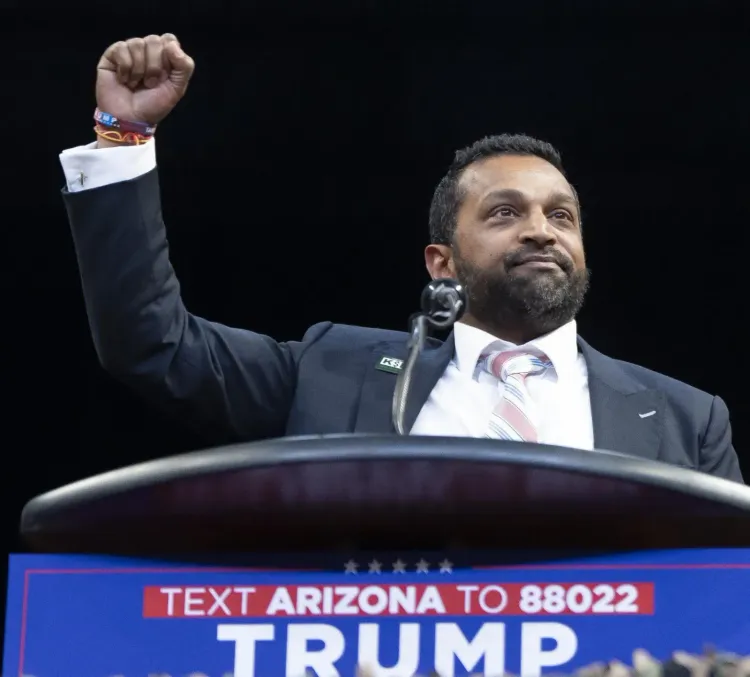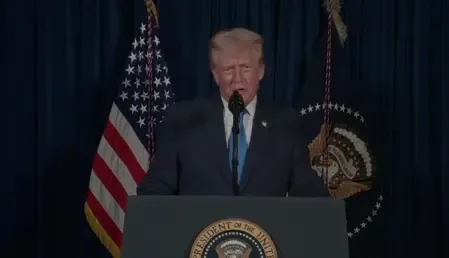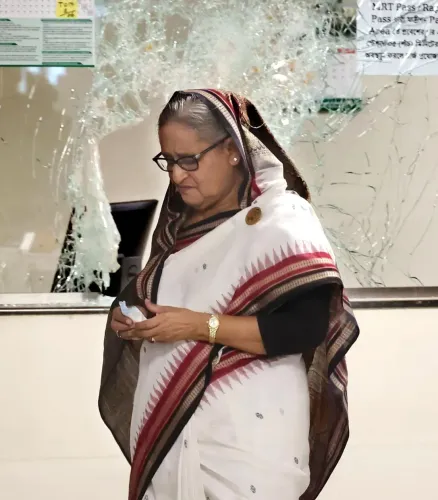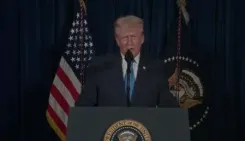The Journey of Kash Patel: From Public Defender to FBI Director

Washington, Dec 1 (NationPress) Indian-American Pentagon official Kashyap 'Kash' Patel is poised to take charge of the Federal Bureau of Investigation (FBI) in the upcoming administration of US President-elect Donald Trump.
Patel, a steadfast supporter of Trump, has been vocal in his calls for dismantling what he refers to as the "deep state" within the US government.
Born in 1980 in Queens, New York, to Gujarati immigrant parents from East Africa, Patel earned a law degree and began his professional journey as a public defender in Florida, where he represented clients in both state and federal courts. He subsequently joined the Department of Justice as a prosecutor, focusing on international terrorism cases in both East Africa and the United States.
During his time at the Department of Defense as a civilian lawyer, he concentrated on global counterterrorism operations, which caught the attention of Congressman Devin Nunes. Nunes enlisted Patel as senior counsel on counterterrorism while serving as Chair of the House Intelligence Committee.
Kash Patel rose to prominence during Trump's first term and participated in the House Republicans' inquiry into the FBI's handling of the Russia probe. He was instrumental in crafting a controversial GOP memo that claimed bias in the FBI's investigation of Trump's 2016 presidential campaign.
This document, dubbed the "Kash Memo" by the media, became a focal point in the partisan disputes surrounding the Russia investigation.
At 44, Patel continued to shape Trump's national security policies as the Chief of Staff to the Acting Secretary of Defense. During this period, he faced allegations of serving as an unauthorized backchannel for Ukraine.
Patel has stated his intention to reform the FBI. In an interview on the conservative Shawn Ryan Show, he proposed significant changes, including dismantling the FBI's intelligence-gathering operations and repurposing its headquarters.
"The biggest problem the FBI has encountered stems from its intel operations. I'd separate that component. I'd close down the FBI Hoover building on the first day and reopen it the next day as a museum of the deep state," Patel expressed.
"And I'd relocate the 7,000 employees working in that building across America to pursue criminals. You are law enforcement officers. Go be law enforcement officers," he added.
Patel plans to collaborate with Trump's proposed Attorney General, Pam Bondi, to restore what the President-elect described as the FBI's foundational principles: Fidelity, Bravery, and Integrity.
His nomination reflects Trump's discontent with current FBI Director Christopher Wray, whom he has criticized for the bureau's investigations into Trump, including the search of Mar-a-Lago for classified documents.
The appointment also signifies Trump's dedication to reshaping federal law enforcement and fortifying his administration's connections with the Indian-American community, a group that has been gaining political influence in the United States.
Trump announced Patel's nomination via his social media platform Truth Social, commending his accomplishments and commitment to the "America First" agenda. Trump highlighted Patel's role in unveiling what he termed the "Russia Hoax" and showcased his extensive legal experience, which includes over 60 jury trials.
If confirmed by the Senate, Patel would make history as the first Indian-American and South Asian to lead the FBI, marking a significant achievement for the Indian-American community.
Patel's nomination signifies a notable advancement for the Indian-American community, which has been steadily increasing its influence within the political framework of the United States, reflecting its growing financial power.
This nomination under Trump's leadership marks a new era for the community. Previously, Trump appointed Nikki Haley, an Indian-American Republican, as ambassador to the United Nations during his first administration, a role that made her the highest-ranking Indian American in the US political landscape until Kamala Harris was elected Vice President in 2020 as part of President Joe Biden's ticket.









